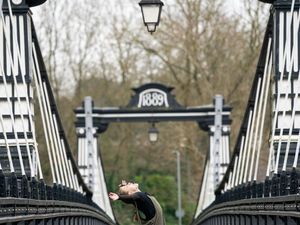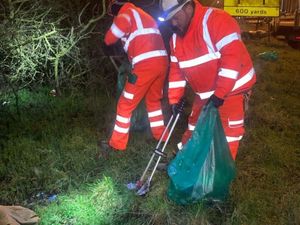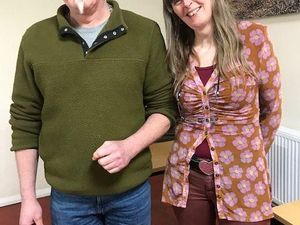Staffordshire rail protesters make a racket
Protesters against a high-speed railway line being built through their Staffordshire village have played the noise of trains over loudspeakers to show how they will be affected.

Protesters against a high-speed railway line being built through their Staffordshire village have played the noise of trains over loudspeakers to show how they will be affected.
Campaigners from Whittington and Fisherwick, near Lichfield, have stepped up their efforts to demonstrate how, they claim, peace will be shattered in their area if the line is built.
The campaigners said they played the sounds so they could give villagers a realistic idea of what the trains would sound like. Noise levels reached up to 95 decibels.
Campaigner John Heeler said: "You only have to visit Whittington and see the growing number of posters and car stickers to realise that opposition to HS2 is growing all the time.
"The DEAFinately Noisy event was extremely successful. We toured the village demonstrating some of the sound levels that would be heard in the village, carried on a prevailing wind, equivalent to 95 decibels or a jet aircraft taking off, and people seemed genuinely shocked and surprised.
"We also want to send a clear message to the Government that we think it is a waste of everyone's money.
"We don't want it here or anywhere else."
The Government believes that the line, known as HS2, would bring a £44billion boost to the country's economy. The route would pass through Buckinghamshire, Northamptonshire, Warwickshire, Staffordshire and Oxfordshire.
The HS2 opposition group believes that the £17bn for the schme should be used to update the existing West Coast mainline instead.
The Government in February launched a consultation until June on the plans, which are intended to cut journey times between London and Birmingham to about 50 minutes.
If approved, work on the line would start in 2015.
Emma Tennant, for the group, said: "This certainly made an impact, and you can see in the village now that there are a lot more leaflets up in people's houses.
"This is about building awareness in the community about it. We don't want to be accused of being nimbys; it's about considering the wider community, and we don't think it will benefit the area or the country."





